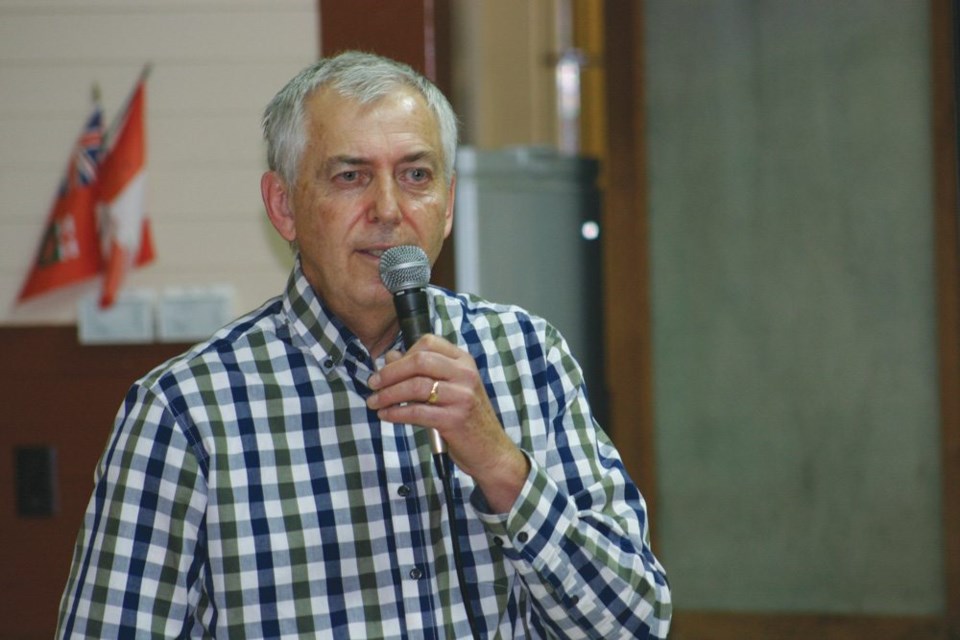Ed Stozek’s latest documentary, “The Time That Once Was,” delves into past generations residing in the Olha area. So it was fitting that the Dauphin man with local roots shared the story of the documentary at the Olha Hall in October.
Those in attendance learned that the film was inspired by a quote from a Canadian history course… “I think a stalwart peasant in a sheepskin coat, born on the soil whose forefathers had been farmers for 10 generations, with a stout wife and a half-dozen children is good quality.” (Clifford Sifton, minister of the interior, 1896-1905)
Stozek himself is a descendant of “good quality,” inheriting a strong Polish-Ukrainian background from his parents and ancestors who came to Canada and settled in this area of the Parkland region.
The retired teacher-turned-filmmaker explained that back in 1899, one group of Galicians in sheepskin coats arrived in Halifax, travelled by rail to Strathclair, then made their way to their homesteads north of Oakburn where their humble beginnings laid a strong foundation for succeeding generations of Slavic heritage. By 1949 Ukrainians had established themselves and constituted 12.5 per cent of Manitoba’s population.
Settlers faced harsh realities. Some survived an epidemic of scarlet fever. Others were the brunt of racial prejudice, with over 8,000 people of Ukrainian heritage labelled by the government as enemy aliens and did hard labour in 26 work camps scattered throughout Canada.
However, not all was doom and gloom, as Stozek touched on the positives of being associated with small-town Manitoba and living on a small mixed farm, as a young boy, southeast of Olha.
“Along with five general stores at Oakburn, within a short driving distance from my family’s farm there were also three country stores, five one-room schools, and numerous churches,” said Stozek. “These memories, plus memories of settlers cherishing get-togethers at dances, weddings, and other social outings, are shared on my latest documentary.”
His first two documentaries — “The Sawmill Boys and Alex Kippan,” and “The Ghosts From Whitewater Lake” (about German PoWs in Riding Mountain National Park) — as well as his latest documentary, are included in the Bell MTS “Stories From Home” collection.
In addition to films, Stozek has also penned several books. Clearly passionate about local history, Stozek says, “By stepping back in time, I can feel the heartbeat of a former way of life of myself and so many others. One of the best things about writing books and doing videos, is meeting people, hearing from families, and learning new information on people and places at outings,” said Stozek.
Before picking up his guitar, and singing the words to his song “Just An Old House,” Stozek told the audience he had the pleasure of visiting the old family farm home with his grandson this summer.
Brought to Olha by the Parkland Ukrainian Pioneer Association, Stozek, a former columnist in the South Mountain Press who continues to write for The Dauphin Herald, said it’s always a pleasure to take a drive from Dauphin back home.
“A trip back in time has brought many renewed friendships.”
Having spent over 30 years educating others, Stozek first attended the St. John one-room country school, and after Grade 6 he took many school bus rides to Oakburn and then to Elphinstone. He left the family farm in 1970 to attend Brandon University, and the rest, they say, is history.




